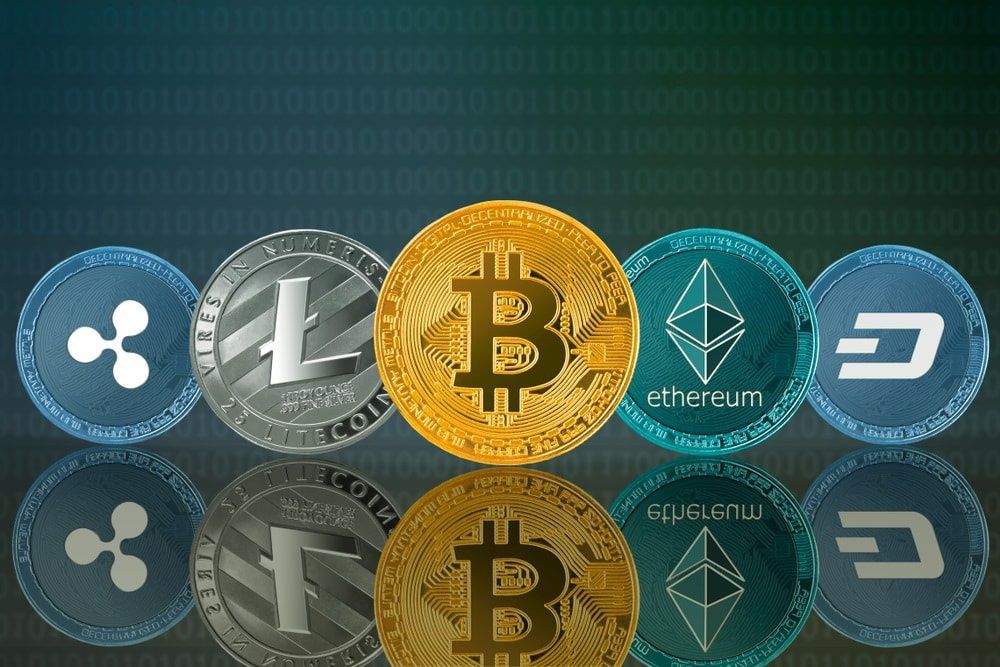World’s Biggest Bank Warns Crypto Gains May Be Short-Lived
21.07.2024 20:20 1 min. read Alexander Stefanov
JPMorgan analysts are suggesting that any recent gains in cryptocurrency prices are likely to be short-term rather than indicative of a lasting upward trend.
They highlight that Bitcoin’s current value of around $66,900 is notably above its production cost of $43,000 and its volatility-adjusted value compared to gold, which is approximately $53,000.
The report, led by Nikolaos Panigirtzoglou, indicates that the significant disparity between Bitcoin’s price and its adjusted value suggests limited potential for long-term price increases.
They expect that the recent turbulence in Bitcoin futures, influenced by factors such as liquidations and government sales of seized bitcoins, will ease after July.
This should lead to a recovery in Bitcoin futures starting in August, similar to trends observed in gold futures.
The analysts also note that a possible second term for Donald Trump could positively impact Bitcoin and gold.
They suggest that Trump might be more favorable toward crypto policies compared to the current administration and that his trade policies could lead to increased gold purchases by central banks in emerging markets, including China.
-
1
Ripple Faces Legal Setback as Court Rejects Bid to Ease Penalties
26.06.2025 16:54 1 min. read -
2
Ripple Has Applied for a National Banking License
03.07.2025 7:00 2 min. read -
3
What Will Happen With the Stock Market if Trump Reshapes the Fed?
29.06.2025 13:00 2 min. read -
4
Barclays Blocks Crypto Credit Card Payments in Latest Blow to Retail Investors
26.06.2025 8:00 2 min. read -
5
Top 10 Biggest Crypto Developments This Week
12.07.2025 22:00 3 min. read
Weekly Crypto Roundup: Bitcoin Hits ATH, Ethereum Surges, Trump Advances Crypto Reforms
Analyzing the latest updates shared by Wu Blockchain, this past week underscored a pivotal shift in the crypto landscape. Bitcoin surged to a new all-time high of $123,226, pushing the overall crypto market cap beyond $4 trillion—a milestone reflecting renewed investor confidence and accelerating institutional flows.
Charles Schwab to Launch Bitcoin and Ethereum Trading Soon, CEO Confirms
Charles Schwab is preparing to roll out spot Bitcoin and Ethereum trading, according to CEO Rick Wurster during the firm’s latest earnings call.
BlackRock Moves to Add Staking to iShares Ethereum ETF Following SEC Greenlight
BlackRock is seeking to enhance its iShares Ethereum Trust (ticker: ETHA) by incorporating staking features, according to a new filing with the U.S. Securities and Exchange Commission (SEC) submitted Thursday.
IMF Disputes El Salvador’s Bitcoin Purchases, Cites Asset Consolidation
A new report from the International Monetary Fund (IMF) suggests that El Salvador’s recent Bitcoin accumulation may not stem from ongoing purchases, but rather from a reshuffling of assets across government-controlled wallets.
-
1
Ripple Faces Legal Setback as Court Rejects Bid to Ease Penalties
26.06.2025 16:54 1 min. read -
2
Ripple Has Applied for a National Banking License
03.07.2025 7:00 2 min. read -
3
What Will Happen With the Stock Market if Trump Reshapes the Fed?
29.06.2025 13:00 2 min. read -
4
Barclays Blocks Crypto Credit Card Payments in Latest Blow to Retail Investors
26.06.2025 8:00 2 min. read -
5
Top 10 Biggest Crypto Developments This Week
12.07.2025 22:00 3 min. read


